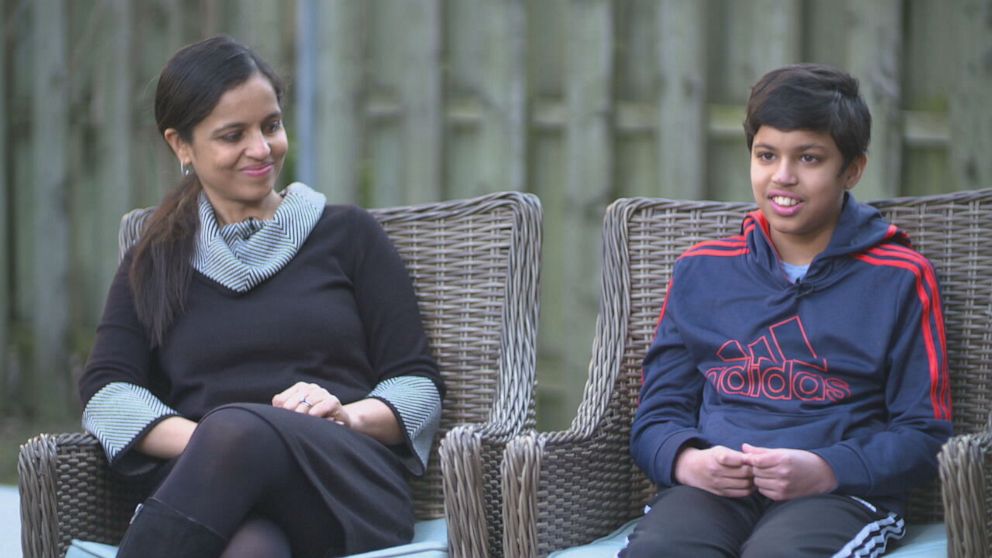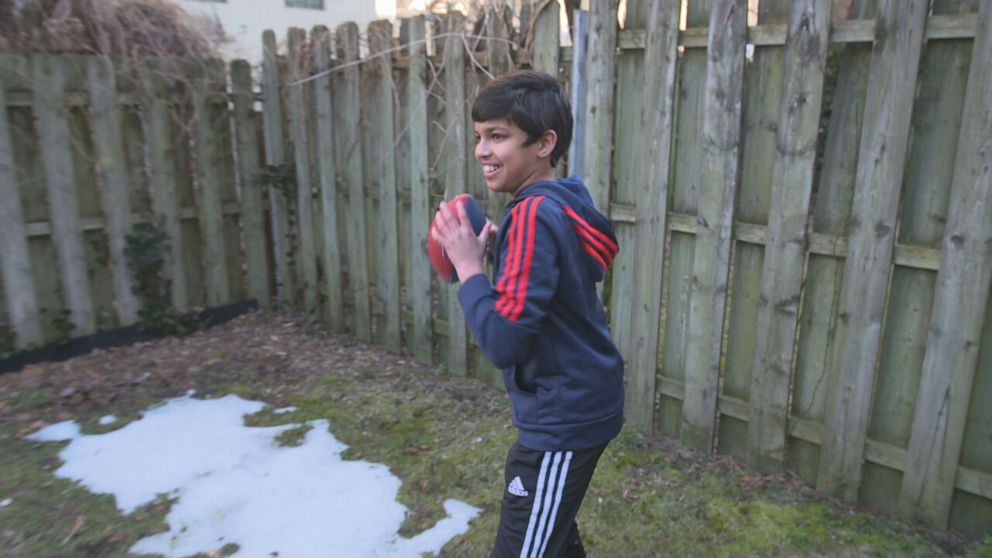What experts have learned about effects of screen time in COVID-19 isolation
Too much time in front of devices could affect kids' physical health.
These days, screen time seems to be all the time. The digital age has allowed children and adults alike nonstop stimulation in an infinite virtual playground.
“Everything has been kind of transformed to this 2D world,” said Heather Berlin, Ph.D., a neuroscientist and professor of psychiatry at the Icahn School of Medicine at Mount Sinai. “Our brains on screens, it's an addiction.”
Those most susceptible, Berlin says, are the youngest among us. Eleven-year-old Ayaan Mukherjee began using his first computer for remote learning last spring. He said that in just a matter of days, things started getting out of hand.

“It started with a couple of videos,” Ayaan said. “Then I started watching more and more. I watched like every free moment I had, and day and night.”
According to Berlin, our brains are biologically wired to keep watching. Binging triggers the release of dopamine, a neurotransmitter associated with pleasure, which travels to the nucleus accumbens, a part of the brain responsible for reinforcing behaviors -- driving people to watch more of what they love.
The prefrontal cortex of the brain works to weigh the consequences of certain decisions, like binging. It might step in to tell the brain that “you need to sleep” or that “you should turn the devices off.” It can be a constant battle between immediate pleasure and self-control -- which can be exhausting.

“Studies show that with children, the longer time they spend... on screens, the worse their social and emotional development,” Berlin said.
Ayaan’s mother, Preetika Mukherjee, Ph.D., is a neuropsychologist herself. She told ABC News she noticed an immediate shift in her son’s behavior after he began using the computer -- saying he was extra tired, moody and irritable.
“It was hard. It was difficult because he's usually not this dysregulated,” she said. “He's a very even-keeled kid. So, to go through that, we were questioning, ‘What could it be?’”
Researchers have linked excessive screen time among kids to a loss of social skills, behavioral problems, less sleep or irregular sleep, obesity and even violence, according to the Mayo Clinic.
Like millions of Americans, Lindsey Rechler, a mother of two, has been working and parenting from home for over a year now. She spoke to ABC News about the impact of all the extra screen time on her family.
“When you're fully plugged in, you lose a little bit of sense of boundaries. [One] really just ends up immersed in this screen of images and work,” she said.

She’s had to balance her own screen time as a busy director at an investment bank while also managing the screen time for her young children, who are learning from home.
“We went from, ‘Don't take mom and dad's iPad’ to ‘Here is your own,’” Rechler said. “Taking that iPad away after that virtual session [was] over proved to be very difficult.”
Limiting screen time became especially difficult as the internet became a vital link to the outside world.

“They went from interacting with every day, going to the playground, seeing their friends to just pure isolation in our home,” Rechler said.
Berlin said that when it comes to in-person interactions, our brains subconsciously pick up on cues like body language and touch to help us respond appropriately in social settings.
"Typically when you're face to face, you can exchange up to 10,000 nonverbal cues in less than a minute,” body language expert Patti Wood told ABC News.
Remote communication misses out on much of those cues -- and conflicts with how we've evolved to converse, according to Jeremy Bailenson, a professor at Stanford University who leads research on the subject.
The brain has had to adjust to a digital world of disrupted conversations from spotty internet connections, exaggerated expressions and a lack of eye contact. Wood said this has caused what's now been dubbed "Zoom fatigue."
“Zoom fatigue is when you've been doing it for hours a day, you get this kind of exhaustion,” said Bailenson. “You feel drained, you feel exhausted, perhaps more than you would after meetings around people in the real world.”

Another important stimulus our brains are missing out on is smell, which plays a role in our in-person interactions, Berlin says. Smell the only sense that can go straight from sensory receptors directly to the cortex -- making it especially powerful and informative.
“We're getting information from people in terms of odors… about emotions, about how they're feeling, and we're losing out on a lot of that,” Berlin said. “I think it's making us less connected in certain ways.”
The smells that play a part in our interactions include everything from sweat to shampoo, perfume, laundry detergent, and recently-eaten food.
All the minutia our brains have been trained to take in and react to have been altered dramatically. This change has created a dizzying combination of effects on the human mind, and the long-term impact of this remote lifestyle is still a mystery.
“We don't know the answer, but we are working pretty hard to figure it out,” Bailenson said.
For now, there are ways people can limit the impact of excessive screen time.
Ayaan has taken all devices out of his room and set a time limit with his parents for when he can use them. He even wrote about his experience to share with other kids.

“It was hard at first, like in the first few days, first week,” he said. “But as it went by, I felt more relieved that I wasn't spending as much time on the screen.”
Rechler hopes her children will be able to readjust when life returns to normal.
“I need to teach my kids how to be a friend again, teach them that it's OK to have human interaction,” she said.
Berlin is optimistic that the resiliency of the human brain will help kids who’ve gotten too much screen time bounce back, especially if they’re young.
“With children, they're fortunate in the sense that they'll probably come out of this and be able to readapt again,” Berlin said. “There might be certain critical periods of development of social and emotional development that they missed, but I think that it'll be very quick for them to catch up with what they have lost.”




